Education in Metaverse
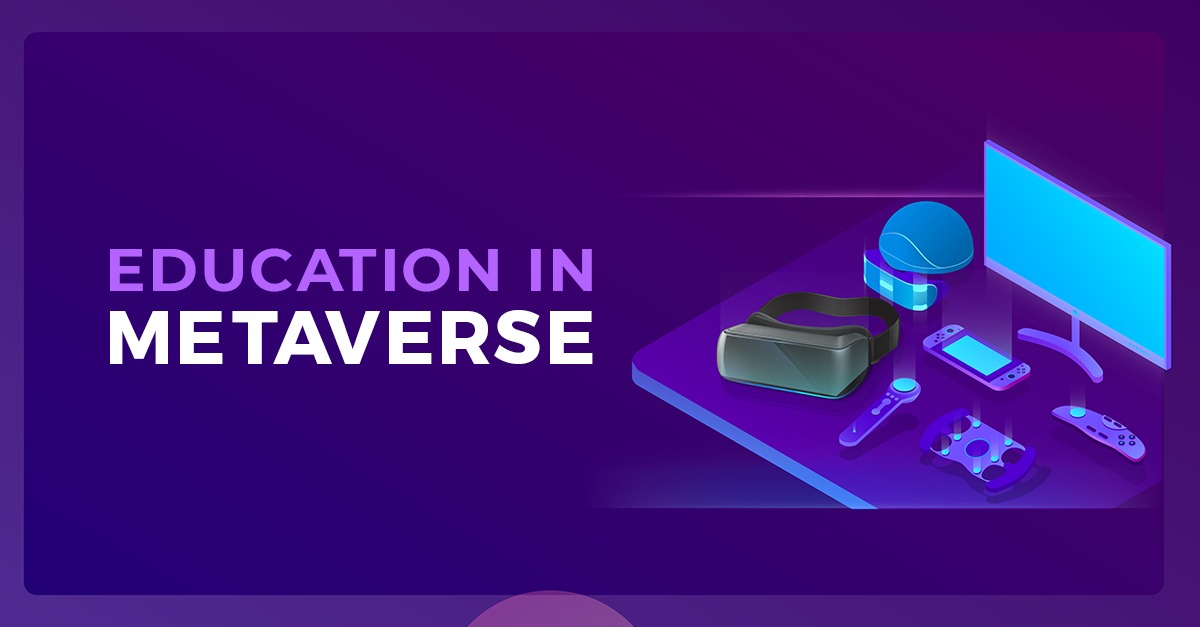
Over the last two years, the education sector has experienced a significant shock due to the COVID-19 pandemic; and unfortunately, most educational institutions have failed to take advantage of technology in education. Since early 2020, both teachers and students had to adapt to a new, remote style of learning. Technology has been crucial to the continuation of learning throughout the global lockdowns.
Learning Types
There are four important learning types, which include distance learning and the conventional style. The first one is a non-digitized synchronous type that corresponds to traditional face-to-face learning. The second one is the non-digitized, non-synchronous type. Correspondence education is a good example of it. The third one is the digitized, non-synchronous type. It includes general e-learning classes. And lastly, a fourth type – is digitized, synchronous learning. A TV class through the Internet and metaverse would be concrete examples of the fourth learning style.
Metaverse and its uses
A metaverse is a virtual world in which users can interact with a computer-generated environment and other users. It is more like the Internet in 3D.
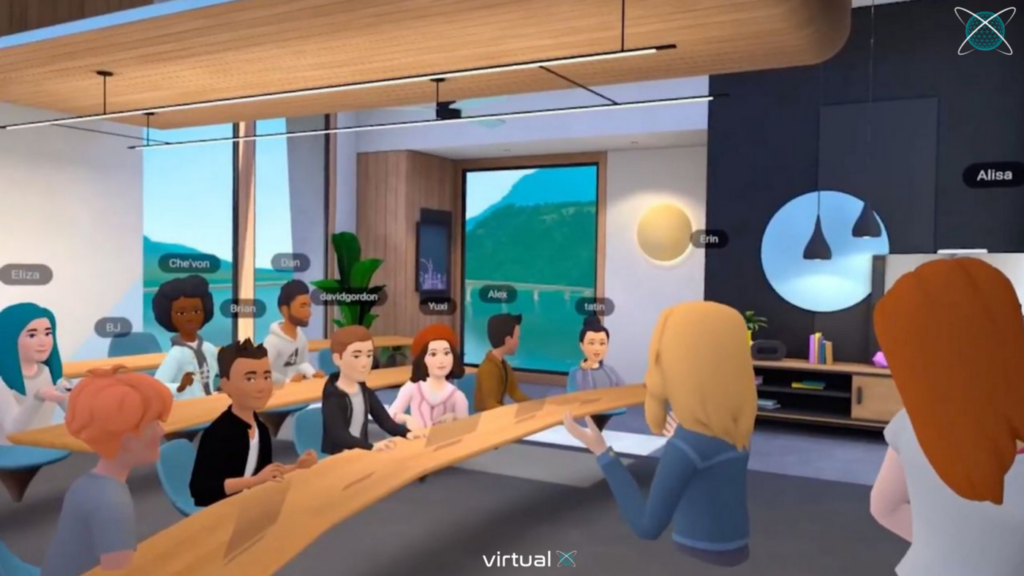
Developers suggest that metaverse can be used to improve productivity or as a way to create interactive learning environments. In the metaverse, an avatar can move between spaces, including the lecture hall, as part of the online experience. This can enhance the quality of learning and engagement and also allow distant learners to virtually visit the campus. Students can learn in context and explore new perspectives by taking virtual trips to other parts of the virtual world. Learning is best achieved by doing, and simulated activities are all about experiential learning.
In addition to it, education in the metaverse is based on immersive technologies – a virtual extension of reality that allows you to perceive better and understand the surrounding reality. A person is literally immersed in a given environment. You can see and speak with other students, touch objects in the environment around you, buy and sell digital products, share information and resources, and do exercises as a game. Instead of viewing content, you’ll be in it. So, incorporating education into the Metaverse will allow students to collaborate, socialize, and play games in class.
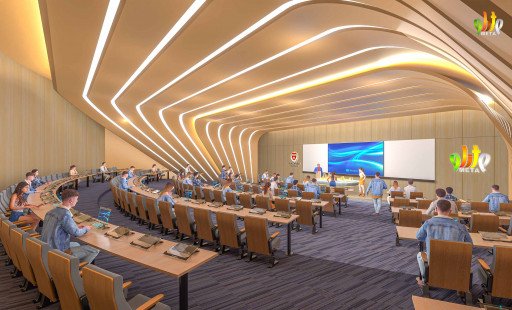
Many technical experts and educators wonder what kind of things could be done with the metaverse if the Internet itself is beneficial to learning in its current state. Education in the metaverse would undo the adverse effects of in-home isolation. It could lead to several possibilities in terms of socialization and a broader understanding of the world at large.
Instructors can create rooms with life-like objects
- Instructors can build literal rooms with lifelike objects for students to engage with and learn.
- Students can walk around the room, raise their hands, sit at their desks, and write notes on paper.
Implementing education in the Metaverse allows you to do just about anything that you can do in a real classroom.
Students can build study rooms to meet
Just like instructors can create realistic classrooms, students can do the same for their study groups. They can build spaces to meet up, share information, and connect with their classmates.
School faculty and staff can conduct internal meetings
School faculty and staff members can create virtual rooms to hold departmental meetings, collaborate, and share information.
Impact of Education in Metaverse
There are four ways to use Metaverse to transform learning:
- Bring curricula up-to-date: The world is constantly changing with new technologies and schools of thought emerging all the time. It’s easy for curriculum to lag a step behind, but the Metaverse has the potential to make the whole world a classroom with data bits embedded all over the real world.
- Gamification: One of the greatest potential benefits of the Metaverse in education is how it could “gamify” learning. The virtual world, with its emphasis on collaboration and completing tasks, could make school feel like a video game, with lessons structured like quests, motivating students to finish their work.
- Promote interdisciplinary learning and encourage practical application of theory: VR-based teaching has the capability to break down barriers between subjects and demonstrate the applications of different theories to real-life situations. Many practical tasks such as installing a drain or performing surgery should be taught using VR in the future. This will consolidate learning without the worry of real-world consequences.
- Improvement in test results: Several studies have shown that the use of VR in classrooms can have a positive impact on exam results. Students who typically received a C grade outperformed those who received an A grade on tests after using VR technology to help them study.

While Metaverse is a new platform that’s in the early stages of development, it has the potential to create engaging online courses that can improve the teaching and learning experience for students and instructors in the future. Metaverse learning can correspond to the diversification of learning styles as one of the new digital synchronous learning methods. This method, when used for PBL (Project-Based Learning) in Metaverse, can compensate for the absence of socialization in e-learning.
About Social Buzz
Founded in January of 2016, Social Buzz is a Digital Marketing Agency specializing in branding, marketing, lead generation, content marketing, and social media for small and medium-sized businesses. It consists of a team of passionate, creative, tech-savvy stalwarts, who provide services in web design and development, Search Engine Optimisation (SEO), branding and query-handling on social media channels, and media buying through niche targeting. Due to its successful campaigns in various sectors in education, jewelry, lifestyle, BFSI, and FnB, Social Buzz has earned an outstanding reputation in a short period.
About the Author
Ravish is a New Delhi-based professional blogger and an avid social media expert. He enjoys fine dining, music, and traveling. Ravish specializes in long-form content writing and loves exploring topics on mobile and computer technology. He has a passion for high-tech gadgets and writes about web and mobile applications.
Source of inspiration:
https://blog.cryptostars.is/education-in-metaverse-a-new-dimension-343bb7670c5c
https://www.youtube.com/watch?v=KLOcj5qvOio/



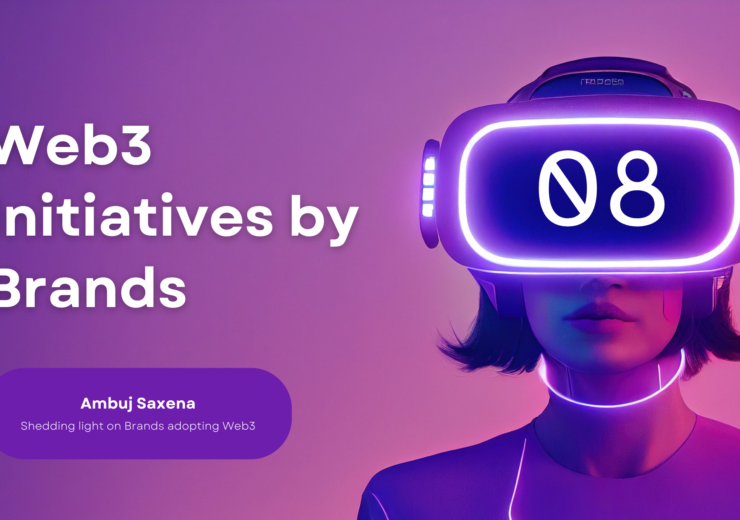
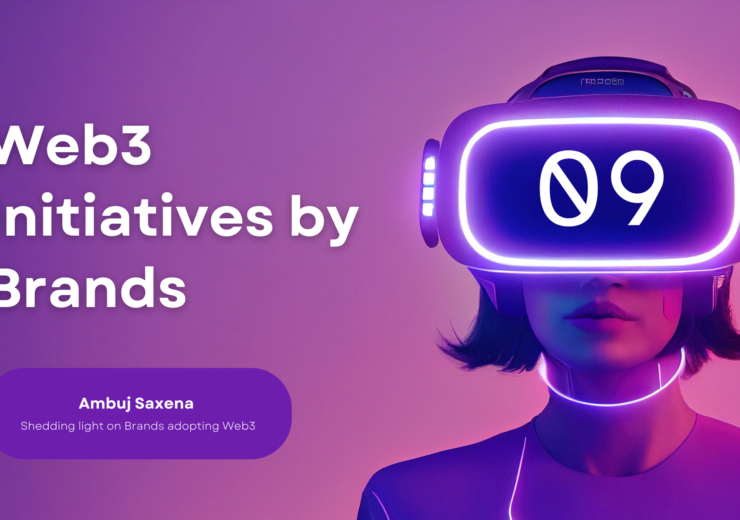
Very informative content. Thanks for sharing this with us.